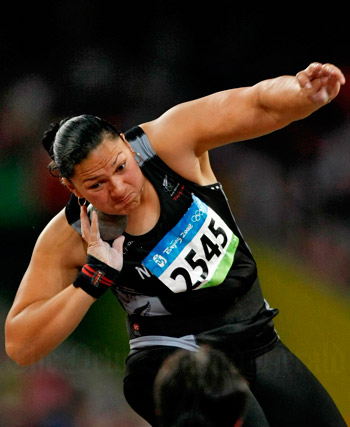Story summary
Small beginnings at the Olympics
New Zealand first competed at the Olympic Games in 1908 as part of a joint Australasian team. It didn’t participate as an individual country until the 1920 Antwerp Olympics, when it sent a four-person team.
In 1928 welterweight boxer Ted Morgan was the first member of a New Zealand team to win an Olympic gold medal. Yvette Williams became the first New Zealand woman to win an Olympic medal – a gold in the long jump – at the 1952 Helsinki Olympics.
Over the decades the size of New Zealand’s Olympic team increased. One factor was ease of travel to the host country. At first sea travel was the only option, and the voyages for the New Zealanders could be long and arduous. By the 1960s travel by air was the norm. It was faster, cheaper and more convenient for large teams.
Recent Olympic history
New Zealand has excelled in a variety of sports at different times. In the 1960s New Zealand runners did well, many trained by the legendary coach Arthur Lydiard. In the late 1960s and 1970s New Zealand rowing entered its first golden era under the coaching of Rusty Robertson.
The 1980s was marked by the rise of other New Zealand water sports at the Olympics – canoeing, swimming and sailing. In the 1980s and 1990s New Zealand equestrians were amongst the world’s best. And in the 1990s New Zealand cyclists began to make their mark. In recent decades the reinstatement of some sports into the Olympic programme, and the introduction of others, has allowed other New Zealanders to achieve Olympic success. New events have included triathlon (Sydney, 2000), BMX (Beijing, 2008), and golf and rugby sevens (Rio de Janeiro, 2016).
By 2022, all but six of New Zealand's medals had been won in the Summer Olympics.
Olympic controversies
Sometimes politics has had a dramatic impact on the Olympic Games. The 1976 Montreal Olympics was boycotted by 26 African nations opposed to the All Blacks’ rugby tour of apartheid-era South Africa. In 1980 most New Zealand Olympic athletes joined a western boycott of the Moscow Olympics in protest at the Soviet invasion of Afghanistan.
From British Empire Games to Commonwealth Games
The first British Empire Games took place in 1930 at Hamilton in Ontario, Canada. New Zealand, as a dominion of the empire, participated and won three gold, four silver and two bronze medals.
Gradually the countries of the British Empire gained independence and developed into the Commonwealth. This was reflected in the changing names of these games, as well as the increasingly diverse cultural makeup of participating teams.
New Zealand at the Commonwealth Games
New Zealand has sent a team to every British Empire Games and Commonwealth Games, and has hosted the games three times: in Auckland in 1950, in Christchurch in 1974 and again in Auckland in 1990.
The Commonwealth Games have provided some of New Zealand’s most famous sporting moments, including runner Dick Tayler’s crowd-pleasing 1974 victory in the 10,000 metres, and archer Neroli Fairhall’s gold-medal winning performance as the first-ever paraplegic Commonwealth Games competitor.





